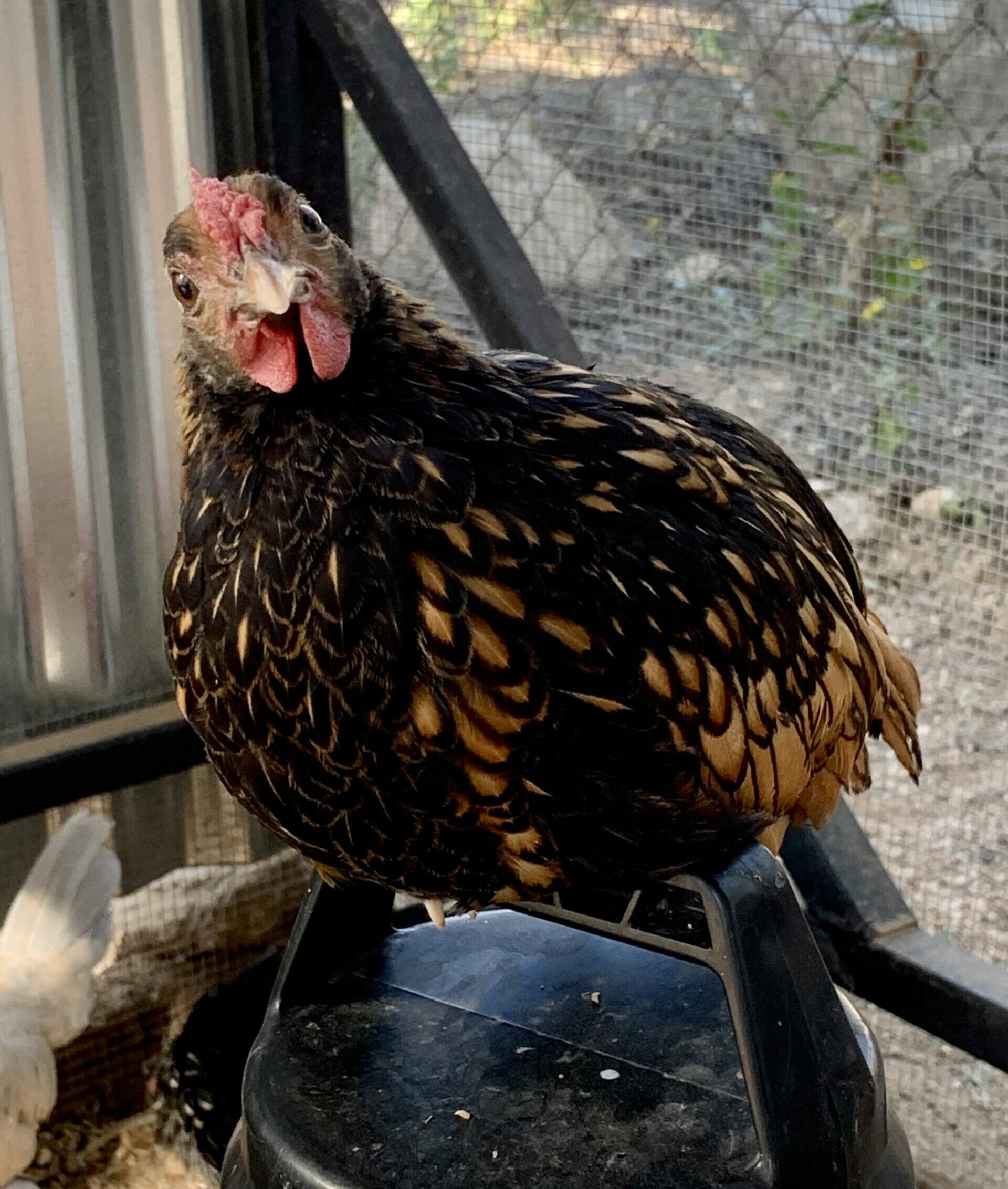Please learn from this list of what I wish I knew before getting chickens. I started with stories about predators wiping out my friends’ chickens. Keeping your chickens safe has to be a priority… even experienced owners make mistakes.
I hope by learning what to expect you can decide if getting chickens is right for your situation. There’s lots to love about raising chickens. Each has its own personality, and all in all, it’s a fun hobby. Getting fresh eggs is incredible.
But, before you bring home your first flock, there are things you should know. Unless you research and ask questions, you won’t know what you don’t know. Here are some things first-time chicken owners (my friends and I) wish we had known.
What I Wish I Knew Before Getting Chickens
1. Predators will try to find a way in
Chickens will attract animals to your property. It’s heartbreaking to go out in the morning and see a predator has attacked your flock. Be proactive, and do all you can to protect them correctly from the start.
Learn what wildlife exists in your area. Predators can also come in the form of your own pets. I had a friend who left baby chicks in her living room in a box while she was at work, and her tiny, “nice and friendly” dog destroyed them. It was horrible. It was a good lesson for all of us: Even our domestic animals can be threats.
Another friend incubated chicks. She has tended to them and kept them in their own area, away from the rest of the flock. When they were about 14 weeks old, she introduced them and eventually incorporated them into the flock. It seemed like the grown hens were doing well with the chicks. Until they weren’t… After two days, my friend’s chicks were all destroyed.
I had another friend lose her entire flock; she thought it was due to a bobcat. She had seen increased bobcat activity and meant to secure her chicken run better. But she was too late.
Having chickens in your yard will attract predators, especially at night when there is less human activity. Chickens will be defenseless and trapped in their home.
Also keep in mind that eagles, hawks, and owls can swoop in and carry off chickens. If you are setting up a chicken run, be sure it’s covered on the top. Learn: How to keep owls away
2. There is physical labor involved
There is lifting and carrying you will likely have to do. This involves setting up the chicken coop, chicken run, and predator protection (chicken wire, etc.) which are one-time responsibilities.
Ongoing tasks include handling large bags of chicken feed and chicken bedding. Buying larger bags — in bulk — is less expensive per pound than buying smaller bags. But they are also heavier.
You will also need to manage the chicken droppings by turning over the chicken bedding, removing it, and replacing it. A few times a year you need to clean out the entire coop.
3. I would have bought a wheelbarrow sooner
The physical work involved is made easier with a wheelbarrow. Owning a wheelbarrow sooner would have helped me in so many ways. You will come to really rely on it so don’t borrow one.
A wheelbarrow will help you move heavy feed bags and potentially bags of chicken bedding (depending on the type you use). You will also likely find it comes in handy when you are cleaning out the coop.
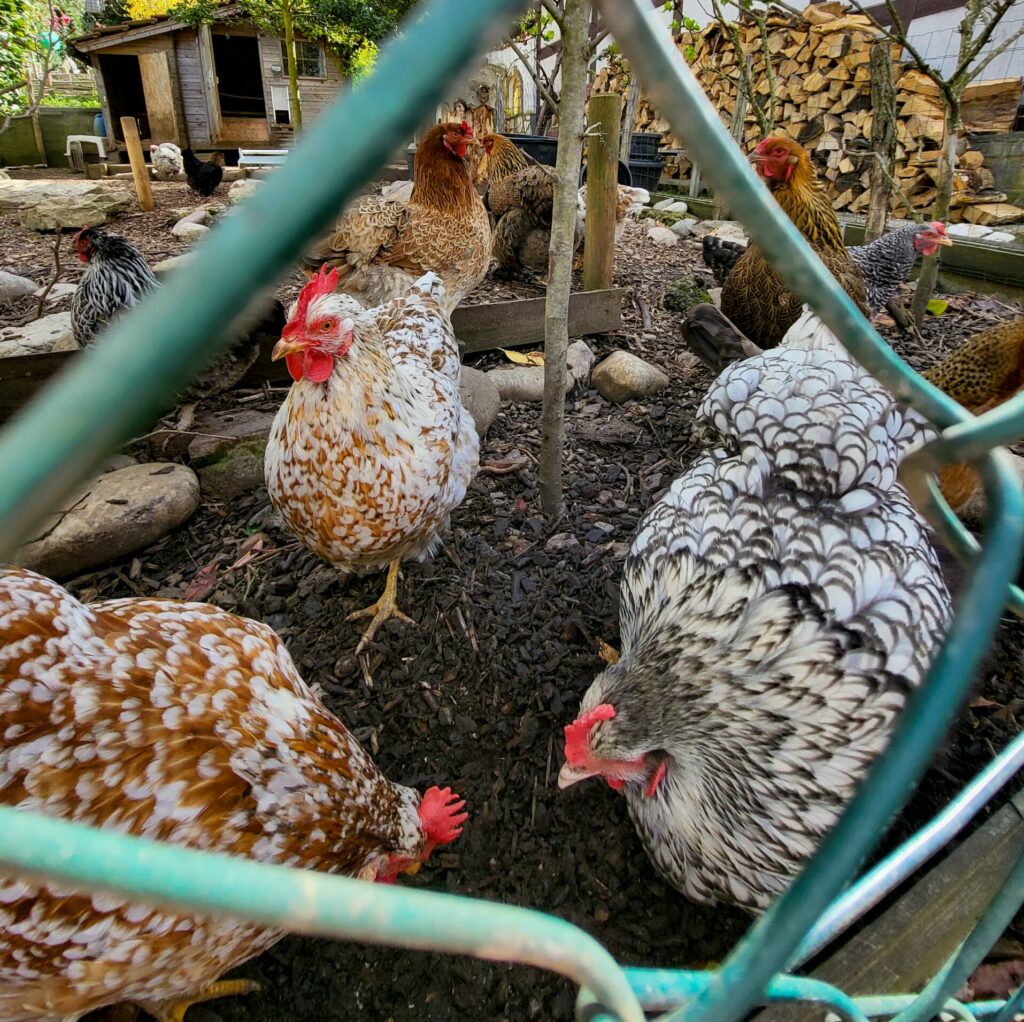
4. It’s easy to become emotionally attached
Having chickens can be a lot of fun. Each has its own personality, and you may grow attached to them like you would with a dog or cat. If you are thinking of raising chickens for meat, keep this in mind.
If you are raising chickens for eggs, it’s important to know there will come a day when their egg-laying dwindles. Will you keep them on as pets? They will take time and money to feed and care for. Will you cull them for meat or give them away? While you don’t have to decide now, you should think about how you can become attached to your flock.
5. Chickens can be noisy
Chickens can sometimes be loud. They make different sounds to communicate with each other, and this can get noisy. Some breeds are known for being quieter than others. It’s something to keep in mind if you are thinking about getting chickens, particularly if you live close to neighbors who may be annoyed.
Keeping a rooster is another issue. He will crow loudly. Learn: Why do roosters crow
6. Roosters are a lot to deal with
Thank goodness, I didn’t start with a rooster. It would have been too much for me. I was learning about flock dynamics and was happy keeping my all-female flock. My neighbors wouldn’t have liked it either.
There are pros and cons to keeping a rooster. A rooster will help protect your flock from predators. You will also be able to hatch fertile eggs. But chickens don’t need a rooster to lay eggs. Learn these tips for raising roosters.
7. Free-ranging makes a difference
If you can’t offer opportunities for free-ranging, be sure to plan for a chicken run. Chickens will thrive being able to have space to move around in the fresh air and sunshine. If you let them out around dinnertime, they will naturally go to their hen house at night — no corralling needed!
Providing opportunities to scratch, have dust baths, forage, and exercise will help you keep a healthy flock. Also, if you have a garden or areas they can forage, they will help with pest management.
This will supplement their diet (for free!) as they won’t eat as much chicken feed. This is also true if you provide occasional produce scraps and other treats.
In a study conducted to assess poultry welfare, it was proven that free-range chickens had better meat quality, gait score, feather conditions, and gut microbial composition compared to caged chickens.
8. It’s not usually cheaper to raise chickens
There are some economies of scale involved if you raise a large flock. However, it’s typically not cheaper to raise chickens than to buy eggs at the store. This is especially the case in the first several years when you are trying to recoup the costs for the chicken coop, chicken run, waterers, feeders, etc.
The more hens you keep, the more eggs you will be able to collect. But it’s also more mouths to feed and more maintenance. And at some point, the hens will stop laying as many eggs.
9. Chickens are work
This seems obvious but this is what I wish I knew before getting chickens. Some of my friends made taking care of chickens seem really easy. And while it may be easy to replenish chicken feed and fresh water, it still takes time.
Also, like with cleaning your home, it’s easier to tend to the coop routinely, rather than waiting for it to become overwhelming.
Once you and your flock are established, you may be able to go a day here and there without checking on your chickens. However, for the most part, you will need to check on them daily.
This includes topping their feed and providing water. It’s important to check on their health as well. If you go out of town, you will need to plan for someone to care for them.
10. There are many reasons hens don’t lay eggs
They aren’t old enough
Chicks have to grow into pullets which grow into hens. In most breeds, pullets start laying eggs when they are 4 – 5 months old.
Egg-laying tapers off as hens age
As your hens become older, they lay less. Their peak production is in their first two years of laying. Depending on the breed and their environment, their egg production may completely stop.
Hens need lots of light to lay eggs
Hens lay the most in the summer when there is peak daylight. Ideal day length is 14 – 16 hours of light. Maximum egg production is reached during summer days with 16 hours of daylight.
Their laying tapers off as the days get shorter and there is less natural light. There will be some months when hens lay only a few eggs. Some breeds won’t lay any at all.
This means in some months, you will have an abundance, and in some weeks, few-to-none. They may not lay at all in the cold winter months.
In the spring, fall, and winter, you can supplement with artificial light to ensure 14 – 16 hours of light to keep egg production going. However, for me, I like to give my hens a rest in the colder months for them to conserve their energy.
Each hen won’t lay an egg a day
A hen releases a yolk roughly every 24 – 26 hours. She starts making a new egg after she lays one, but since making a new egg takes a bit more than a day, she lays the next egg a little later each time. After a while, she will skip a day before laying another egg.
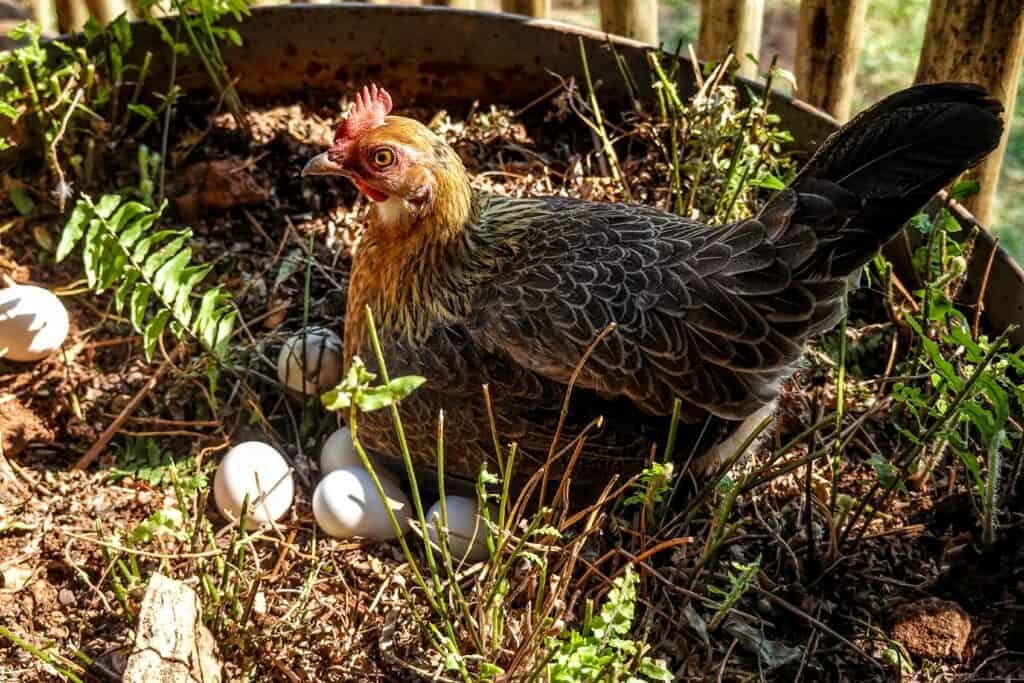
Broody hens sitting on eggs don’t lay new eggs
Sometimes hens aren’t laying because they are broody. Being broody means a hen wants to hatch her eggs instead of laying new ones. When she sits, she won’t lay new eggs.
She will sit on eggs, keeping them warm and safe for about 21 days. This is the amount of time it takes for baby chicks to grow inside the eggs. If you aren’t raising a rooster, the eggs won’t be fertilized. You can always remove the eggs to keep her laying new ones. Certain breeds go broody more than others.
Molting affects egg-laying
Every year, chickens go through a phase where they shed their old feathers to grow new ones. This is known as molting. During this period, hens usually take a break from laying eggs until their molt comes to an end. The time and length of the molting period will vary quite a bit from chicken to chicken.
11. Choosing the right breed makes a difference
Meat, eggs, or both
Some chicken breeds are better suited for eggs, some for meat, and some are dual-purpose, being decent at both.
If you want a small flock but also want lots of eggs, you may want to raise a breed known for laying a lot of eggs. Some of these include Australorps, Isa Browns, Plymouth Rocks, Leghorns, and Rhode Island Reds. For example, Rhode Island Red hens can lay 250 – 300 eggs per year per hen.
Pecking order and social dynamics are important
Choose friendly breeds; it will make your life easier! It will also make for a less stressful environment for your hens.
Chickens have a complex social structure, often referred to as the “pecking order”. It’s fascinating and can also distressing to watch them establish this hierarchy. Learning their behaviors and social interactions will help you manage your flock and keep stress to a minimum.
Learn more: Best meat chickens
12. Raising chickens isn’t cheap
I explain things to consider before raising chickens with a discussion of the costs. But basically, you have the initial startup costs:
- Coop, chicken run, protective fencing
- Feed and water systems
- Initial layer of chicken bedding
- Chicken feed and container to store it
- Chickens
And you also have the ongoing costs for raising chickens:
- Chicken feed: A 6-pound hen will eat around 3 pounds of feed each week.
- Bedding
- Potential healthcare issues
These costs can be worth it if you are collecting lots of eggs every week. However, in the colder months, you won’t be. You also will need to think ahead for when your hens are older and aren’t laying predictably.
13. Start small but have a plan to expand
When I was a true beginner, I wish I started with a smaller flock. I started with 9 chickens but wish I had started with 4 – 6. (Those chicks were so cute! I wanted to buy them all!)
Also, when planning the coop, the run, and the space in general, plan for as much space as you can. This will help keep things more sanitary and will also enable you to expand if you want. Chicken math is real! Chicken math is wanting to add more and more chickens to your flock even if you intend on keeping a small flock.
Also, consider that larger chickens need more space than smaller chickens. Learn more:
14. Just when you get into a routine, the weather changes
Another thing some chicken owners wish they had known is how weather and the changing seasons mean you have to adjust your care. Chickens need protection from harsh climates.
In hot climates, this includes plenty of shade, additional water, and perhaps misters. In cold weather, they need to stay warm and dry to prevent frostbite. Extra chicken bedding and an insulated, draft-free, ventilated coop are essential. You may need to switch them to a winter diet with more protein. Learn more:
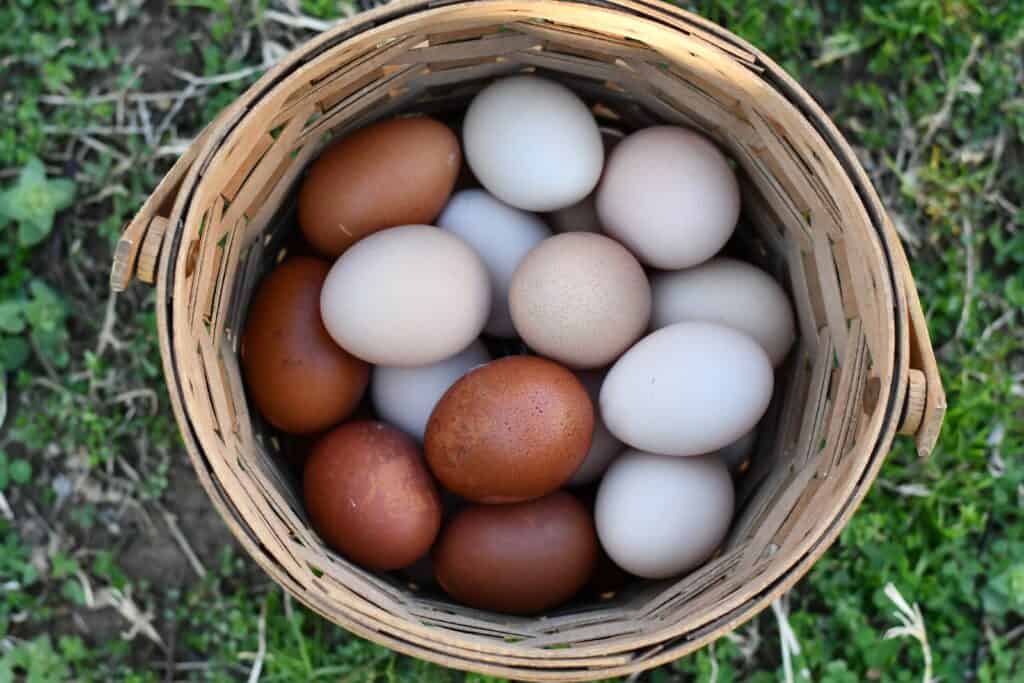
15. What to do with the eggs
Are you planning to sell eggs in order to keep chickens? Be sure to research what a dozen eggs sell for in your area. Selling them will help offset the feed costs but may not cover all your costs. How will you attract customers and sell them?
Having lots and lots of eggs sounds like a good problem to have. And it can be as long as they don’t go to waste. If you raise a large flock of prolific layers, you will collect a lot of eggs.
If you have a large family, this will likely be fine. But if you have a small family, and grow your flock to lay more eggs than you can eat, you will need to either give them away or sell them.
If you are raising Golden Comet chickens and/or Rhode Island Reds… In their peak-producing years, a flock of 5 – 6 hens can lay around 1,500+ eggs in a year!
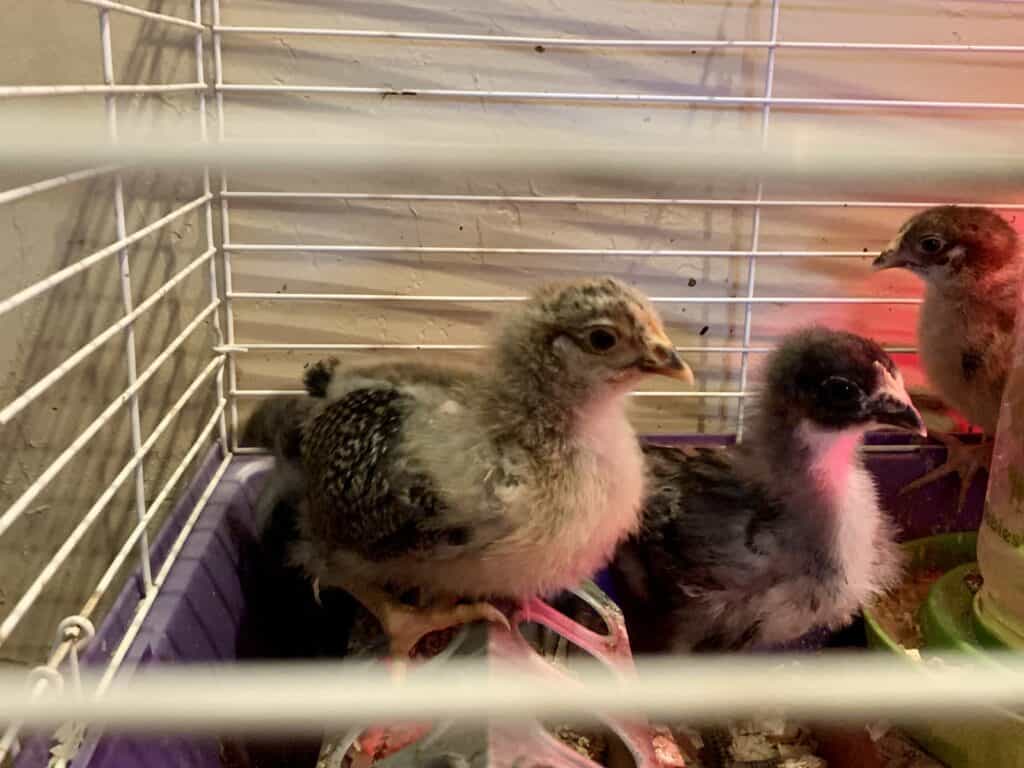
16. Chicks are cute but take extra work
Incubating eggs or bringing home chicks from the store is fun but it takes time and money. When I first started raising chickens, I thought it would be fun to start with fertile eggs and hatch them at home. Little did I know this required more work and experience than I realized.
You will need an incubator (if you buy fertile eggs) and brooder (to keep chicks warm).
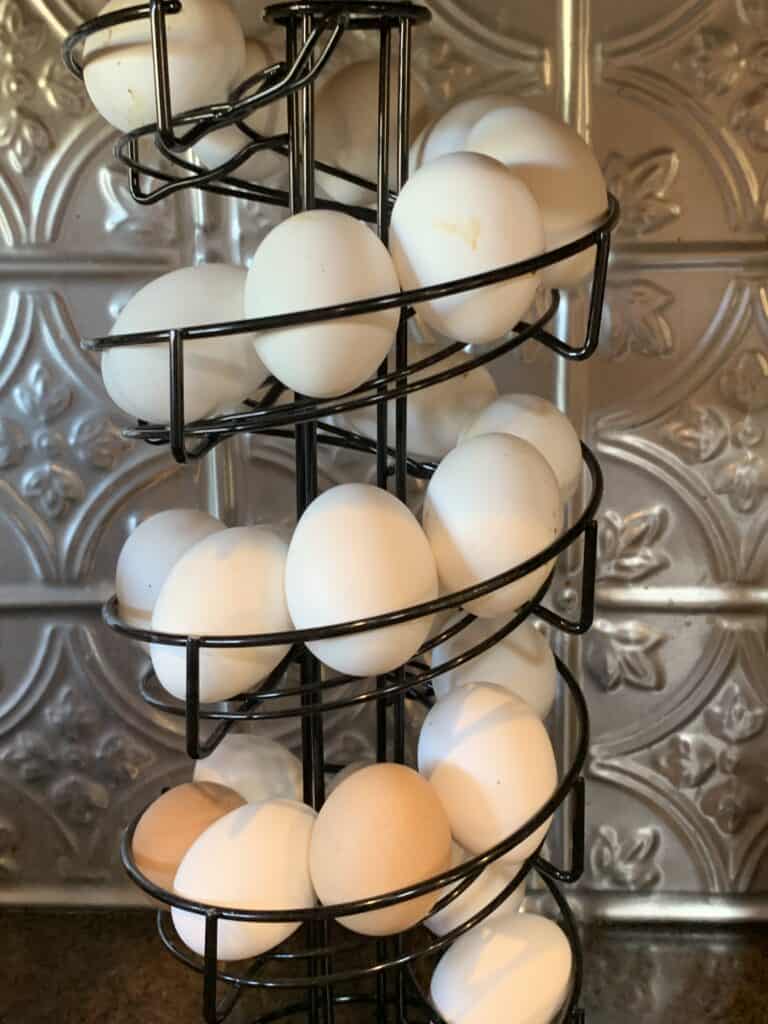
17. To be clear on my goals
Chicks are cute but know what you are buying. Choose breeds you want because they help you achieve your goals, not because they are cute. Consider:
- Are they good for your climate
- How loud the breed is known to be
- Are they known for laying eggs or providing meat
- Is it a friendly breed that would also make a good pet
- Are you wanting to raise them for show/exhibition
- Are they large (lay larger eggs) or small (lay smaller eggs)
18. To take preventative care seriously
Keeping a flock healthy is easier than dealing with healthcare issues later. Keep a draft-free, well-ventilated coop. Watch flock dynamics to prevent bullying. Have enough waterers, feeders, and nesting boxes.
Check chickens regularly for parasites like mites and lice. Secure food sources so you don’t attract mice and rats. Provide enough space along with nutritious feed. Give opportunities for free-ranging. Have an area for dust baths.
As time goes on, you may decide to add new chickens to your flock. To prevent the spread of disease, it’s smart to quarantine the new chickens so you can observe them for signs of illness before combining them with your flock.
Protect Your Flock
I must state this again so you don’t learn this lesson the hard way. Be proactive and do things right from the start. Don’t cut corners when it comes to protecting the chicken run and coop. Predators such as foxes, raccoons, badgers, bobcats, coyotes, mink, and snakes are known to attack chicken coops. Some, like weasels, can squeeze through small gaps.
To safeguard your flock, install chicken wire around the coop and bury a layer of hardware cloth underground to prevent digging predators like foxes and raccoons from gaining access.
Covering the coop with a secure roof will deter overhead threats from swooping in. You may also want to consider installing motion-activated lights to deter nocturnal predators.
Implementing these measures can provide a safe and secure environment for your chickens.
What I Wish I Had Known Before Getting Chickens
All in all, it was a great decision for me to get chickens. However, back when I started, I didn’t know all I was getting into. Ignorance was not always bliss!
Having fresh eggs is amazing but I still have a difficult time culling them for meat. I won’t ever raise meat chickens again. But that’s just me because I get too emotionally attached.
When you are clear on your reasons for wanting to raise chickens, you will choose the best chicken breeds for your situation.
Looking back, I wish I knew a few more things before getting my chickens. Like how they make a lot of mess and can be a bit noisy at times. And the pecking order is real! I was not prepared for the initial stress of figuring this out.
There was a steep learning curve involved. Being prepared and setting your expectations accordingly will make it easier.
Setting up the coop and run correctly in your backyard is essential. Do it right the first time, especially when space is concerned (having enough for the chickens) and protecting from predators.
Learn more:
Featured image credit: Dawn Head

